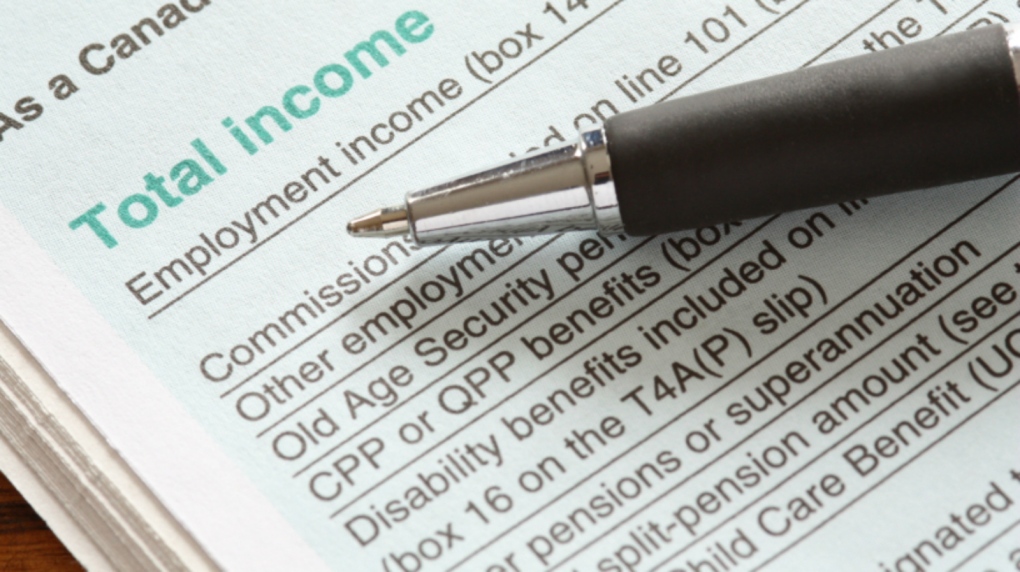Jennifer K. Baker
CTV News Kitchener Writer-Reporter
Colton Wiens
CTV News Kitchener Videographer
March 27, 2023
Thousands of Canada Revenue Agency workers are threatening strike action, and it could cause a delay for Canadians trying to file their 2022 taxes by the May 1 deadline.
In January, the Public Service Alliance of Canada and the Union of Taxation Employees announced a strike vote.
They represent more than 35,000 workers nationwide.
Thousands of Canada Revenue Agency workers are threatening strike action, and it could cause a delay for Canadians trying to file their 2022 taxes by the May 1 deadline.
In January, the Public Service Alliance of Canada and the Union of Taxation Employees announced a strike vote.
They represent more than 35,000 workers nationwide.
The union’s most recent collective agreement expired on Oct. 31, 2021.
The workers are asking for “a fair compensation package, protections in the context of access to remote work, new protections for union jobs and new scheduling rights, including years of service protections where there is evening and weekend work.”
“It’s just been accumulating, years of frustration, so we do not need to convince them,” said Marc Briere, national president of the Union of Taxation Employees. “They are all in favour of voting for a strike.”
He explained that members feel ignored and they haven’t received a wage offer since the agreement ended.
“That, and a slap in the face, feels pretty much the same,” he said. “We’re still hoping that we’ll avoid a strike, but if people think that we’re going to just hesitate, we will not.”
The federal government can pass legislation to force employees back to work, but Briere hopes the two sides can reach an agreement before it gets to that point.
“It’s just been accumulating, years of frustration, so we do not need to convince them,” said Marc Briere, national president of the Union of Taxation Employees. “They are all in favour of voting for a strike.”
He explained that members feel ignored and they haven’t received a wage offer since the agreement ended.
“That, and a slap in the face, feels pretty much the same,” he said. “We’re still hoping that we’ll avoid a strike, but if people think that we’re going to just hesitate, we will not.”
The federal government can pass legislation to force employees back to work, but Briere hopes the two sides can reach an agreement before it gets to that point.
IMPACT ON TAX RETURNS
Voting on strike action, which began back in January, will end on April 7.
As that comes just weeks before the filing deadline, Canadians could experience delays in accessing CRA services.
“Hopefully it doesn’t happen because it could be a real nightmare if it does,” said Lars Jorgensen, the president of EJ Tax Service in Kitchener.
Most tax returns are automated but the strike could cause major delays for some.
“You file a tax return and it just gets processed instantly in most cases, but the call centres are a valuable tool to a lot of people,” explained Jorgensen. “If they’re not able to access that information it could really cause some major headaches.”
Jorgensen said the CRA could extend the May 1 deadline in response to prolonged strike action but his advice is to file sooner rather than later.
CLAIMING PERSONAL TAX CREDITS
Before you file your 2022 taxes, make sure you know what personal credits you qualify for.
The province is offering a Staycation Tax Credit which allows Ontarians to claim 20 per cent of eligible accommodation expenses between Jan. 1 and Dec. 31, 2022. You can find out more about the credit, and how to claim it on your return, here.
There is also the Ontario Seniors Care at Home tax credit,which aims to help low to moderate-income seniors with their medical expenses, and the Childcare Access and Relief from Expenses (CARE) tax credit. To find out more about those and other tax tips, click here.
RELATED STORIES

Tax forms from the Canada Revenue Agency.
No comments:
Post a Comment